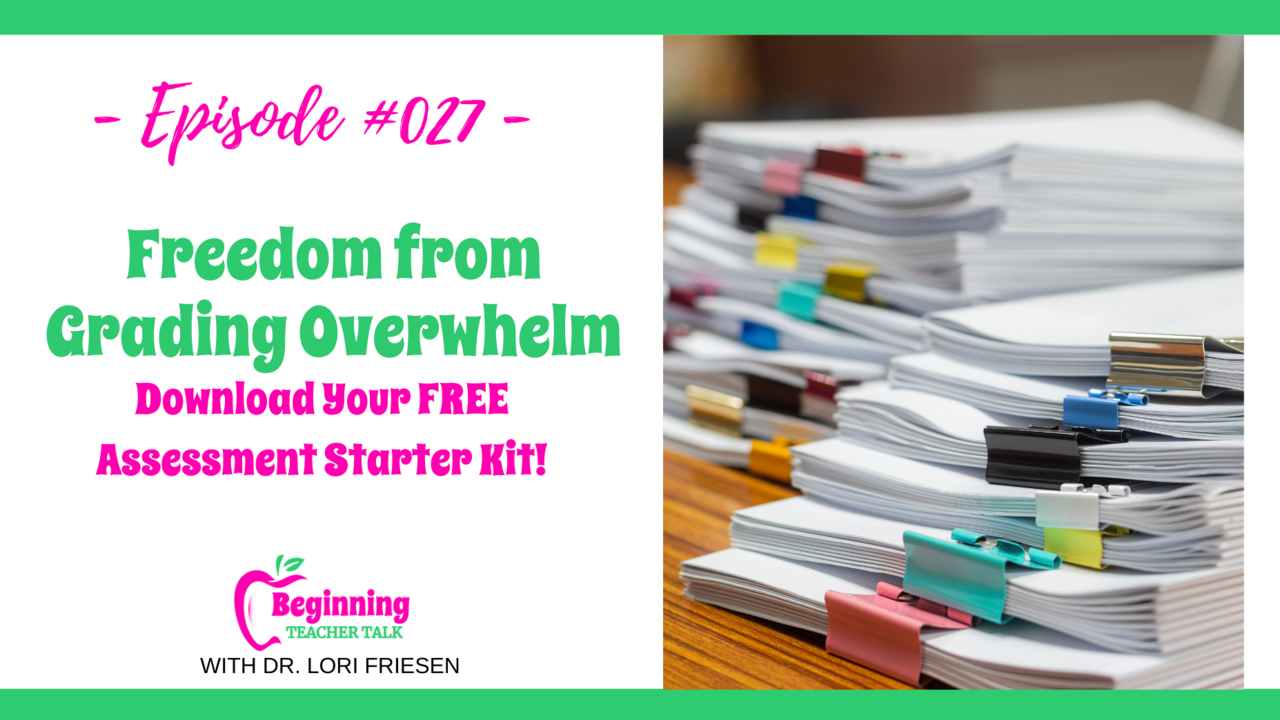Freedom from Grading Overwhelm

Sorry, this episode is no longer available.
 Dr. Lori Friesen | Beginning Teacher Mentor
Dr. Lori Friesen | Beginning Teacher Mentor
Creator of the R.E.A.D.Y. for School Academy and The Classroom Management Club, Dr. Lori Friesen has mentored thousands of beginning teachers across the country through her workshops and courses. Host of the popular podcast, Beginning Teacher Talk, Dr. Lori is dedicated to serving educators and inspiring learners. Learn more at drlorifriesen.com.
Stay connected for surprise goodies & updates!
Join our mailing list to receive the latest news from our team. 💛💕 Your information will not be shared.
Close












